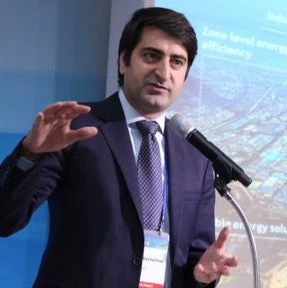
Bangkok, Thailand — November 25, 2011: A flooded factory in the Nava Nakorn Industrial Estate at Pathumthani.
Photo @ photonewman
“No one can tackle climate change alone.” Those words, by Abdelouahed Fikrat, General Secretary of the Moroccan Ministry of Environment, aptly summarized the challenge that we face today in dealing with climate change. He made that declaration at the recent Dialogue for Climate Action event in Vienna, organized by The World Bank Group and the Government of Austria on May 24 and 25.
The Vienna event marked the launch of six Principles on Dialogue for Climate Action — a set of tenets aimed at guiding businesses and governments as they embark on productive conversations on how to cooperate effectively to fight climate change.
The World Bank Group and 12 international partners got together to collaboratively formulate the six principles: Inclusion, Urgency, Awareness, Efficiency, Transparency and Accountability.
In endorsing the principles and signing on to the Community of Practice (CoP) for Dialogue for Climate Action, Fikrat said, “The principles of dialogue launched at this event hold potential to contribute significantly to the COP 22 agenda and offer a tool to policymakers for engaging the private sector. We need to build on the current momentum to speed up the implementation of concrete actions.”
The tone for the event was set by Dimitris Tsitsiragos, Vice President of the International Finance Corporation (IFC), who stressed in his keynote address that “stopping the catastrophic impact of climate change requires urgent, comprehensive and ongoing public-private dialogue”.
Dialogue for Climate Action in Practice
So what does this mean in practice? How do we avoid pursuing a dialogue that is devoid of action? There is significant pressure on all actors to avoid “post-Paris blues” and stagnation. There is also a need to avoid actions in a vacuum, where everyone is doing something but without cohesion and coordination.
The six principles for climate action are based on the premise that all actors, working together, will create greater results. Bangladesh PaCT (Partnership for Cleaner Textiles), a project managed by the World Bank Group, makes a strong case for that approach. The project, which was launched in 2013, aims to introduce cleaner, more environment-friendly production methods in the textile sector, and dialogue is a key pillar of its project design.
PaCT is in the early stages of transitioning from a loosely organized dialogue to a more formal and structured approach to promote dialogue among the various textile and apparel stakeholders in Bangladesh. The project has helped found a Textile Sustainability Platform (TSP), which was recently launched. In the meantime, the dialogues have already reaped benefits that include the establishment of a green fund for textiles of US$500 million and have successfully influenced customs duties on environmental imports
A review of the Bangladesh Fiscal Year 2016 budget indicates that a total of 52 out of 72 capital machines or parts saw a reduction of their customs-duty rates from 2 percent in FY15 to 1 percent in FY16. Based on a technical report by the TSP, such measures would mean a minimal loss of revenue to the government, while they would strengthen the prospects of more environment friendly technologies being used by companies.
Another milestone change that the dialogue was able to influence was customs-duty increases on three chemicals — azo dyes, organotin compounds and chloropheols. These increases are expected to discourage the use of those three chemicals in all relevant sectors and is thus a policy move in the right direction. However, more needs to be done in this area, and the prospects are encouraging with the successful launch of TSP.
Looking Ahead
It will be important for the CoP and the broader climate-change community to work collectively and inform the effective and efficient use of dialogues as a tool for the public sector to engage the private sector and civil society. At a country level, this means working to gradually integrate the principles into national or sub-national dialogues within the Nationally Defined Contributions to carbon-emissions reductions and within other climate-related policies. Projects like Bangladesh PaCT that are spearheading the use of dialogues in support of the climate agenda, and that showcase the potential benefits from it, will be important to support and learn from.
If you are interested in participating in the Community of Practice, please offer a Comment on this blog post.




Join the Conversation